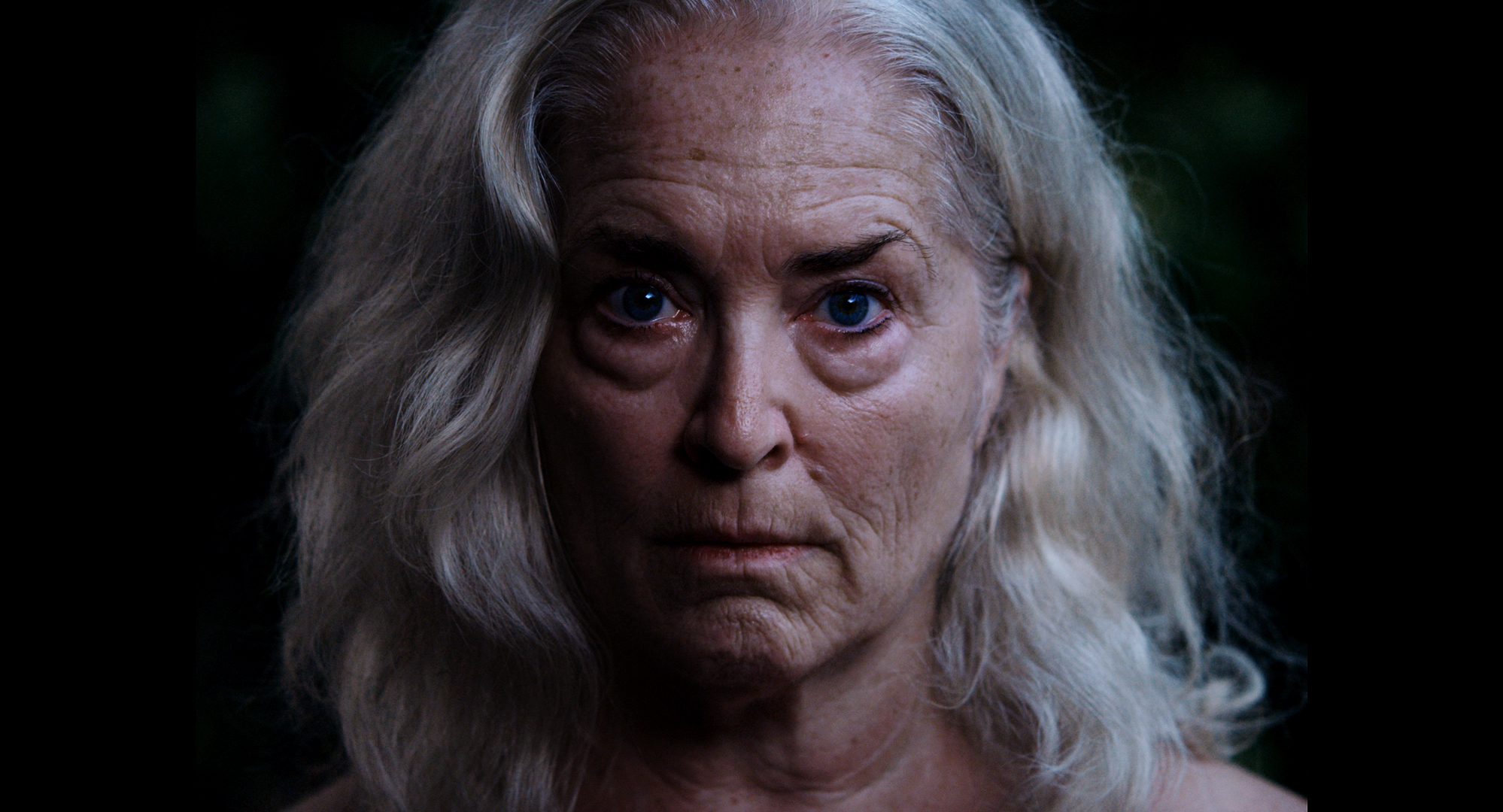*Spoilers ahead*
Krisha is a horror film without death, gore, or jump scares—just an ordinary Thanksgiving dinner. Some relatives are gathered in the living room, watching the football game and cheering on their favorite team, while others are in the kitchen, eagerly preparing the mouthwatering turkey. The house never turns out to be haunted, nor does one of the characters murder the others. Yet even without these conventional elements, first-time director Trey Edward Shults crafts a terrifying viewing experience as we watch a family shun one of their own.
When Krisha (Krisha Fairchild) arrives at her sister Robyn’s (Robyn Fairchild) house for Thanksgiving, it’s clear there’s been a falling-out. Despite Krisha’s efforts at conversation, no one, save for her sister, reciprocates. As the day progresses, frustration and sadness build inside of Krisha, which prompts her to turn to wine and drink away her sorrows. While the wine momentarily lifts Krisha’s spirits, it also causes her to become drunk and drop the turkey when taking it out of the oven, which upsets the others and costs her her seat at the dinner table.
We never learn what led to the previous falling-out; but seeing the way Krisha is treated, we can guess that it was probably serious. When Krisha has a one-on-one conversation with her nephew Trey (Trey Edward Shults), he makes every effort to ignore her. While Krisha smiles, makes eye contact, and keeps her voice warm and friendly, Trey keeps his responses curt and stares blankly at the wall. If I knew more about Krisha, I might take Trey’s side; but, since I don’t know the family’s history, I can only judge Krisha for who she is—not who she was. From offering to prepare the turkey to attempting to reconnect with Trey, it’s clear that Krisha is trying to make amends for her past misdeeds; but, with the exception of Robyn, no one is willing to let her start with a clean slate.
If spending Thanksgiving with a family member you dislike doesn’t sound ideal, imagine spending it with people who largely ignore you. Shults could’ve told this story from the point of view of one of Krisha’s relatives; but it becomes more powerful when told through Krisha’s eyes. Whenever Krisha tries to make conversation with a relative, the camera gradually zooms in on her face so that by the end of the scene, it takes up the entire frame. The effect is an overwhelming sense of claustrophobia and discomfort that mirrors Krisha’s experience. The score adds to the unsettling effect: early on, woodblocks are used to create a ticking noise, which I took to represent Krisha’s emotions, swelling and ready to explode at any moment.
I haven’t mentioned any big-name actors or actresses and because the majority of the cast is made up of Shults’ friends and family. Without the distracting presence of recognizable stars, it’s easier to buy these characters as everyday people. The performances given are phenomenal. Unless you listened to the commentary track, where Trey, Krisha, and Robyn share many laughs, you’d never guess that in real life, the family has nothing but love and affection for each other.
The first time I recalled seeing Krisha with a wine bottle was when she’s in the bathroom amidst her personal belongings. Upon listening to the commentary track, I learned that the bottle actually belongs to Krisha’s brother-in-law and heavy drinker Doyle (Bill Wise) who had stashed it in a drawer in the dining room. It sounds obvious when I describe it, but it’s surprisingly easy to miss as Doyle’s frequent trips to the dining room, to pour wine into his coffee mug, take place amidst the background of busy shots where each family member is wrapped up in their own activity. I appreciate Krisha’s use of subtlety; but Doyle’s activities shouldn’t have been hidden, as they show how he is partially responsible for the turkey drop.
Even if she hadn’t dropped the turkey, I’m not sure that Krisha could’ve won her family over. Krisha’s previous behavior might have been so horrendous that, besides Robyn, no one is able to forgive her. Of course, I emphasize with Krisha. But someone else could come out of this film feeling that she deserved to be given a cold-shoulder. With enough evidence to support either side, I doubt that the discussion about Krisha could ever end.


